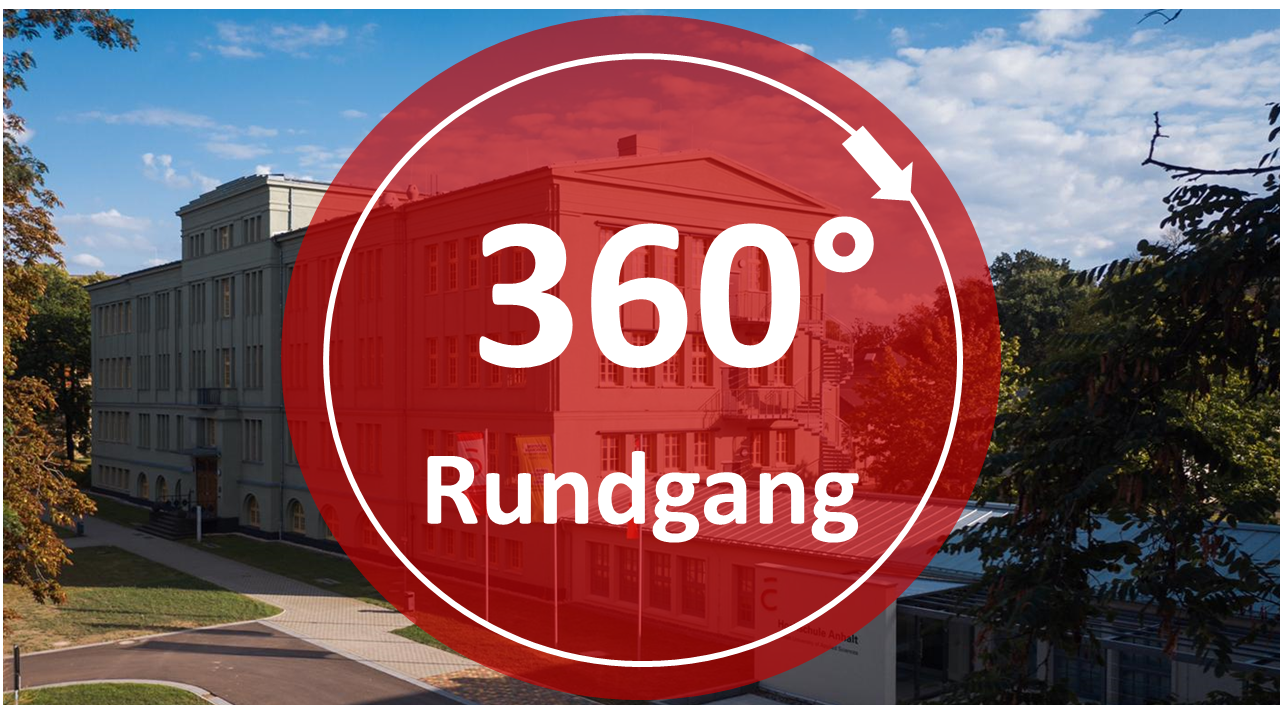Food Technology (master's degree program, full-time, cooperative)
-
What is food technology?
Food technology is an interdisciplinary science involving the entire process of food production. Food, just like the raw plant and animal materials it is made of, is a complex material with properties that change during production and also during storage. Food technology, therefore, includes the physical, chemical, microbiological, process engineering and business management aspects of food production from raw material to high-quality products. In this context, food technology provides knowledge on ingredient analysis, recipe development, selection of the best possible production process with the associated machines and automated equipment, and packaging. With this in mind, both the program content and the future job opportunities are very diverse and interesting.
-
What does the degree program entail?
The 4-semester (120 credits) master's degree program in Food Technology includes in-depth modules in mathematics, science, specialized technologies and inter-disciplinary technologies for food technology. The program intensifies and broadens the knowledge acquired in the bachelor's degree program. In this context, the program focuses on:
Food proteins and enzymes
Lebensmittelphysik
Process Modelling and Simulation
Special system engineering hygienic design
The master's degree program focuses more on project-based knowledge transfer than traditional knowledge transfer. During the degree program, students are required to work each semester in small groups on a project specific to current research topics of the department.
This especially applies to the module, Product Development, in which, over 2 semesters, students will learn about the market/feasibility studies, product manufacturing technology, packaging, and product launches and will acquire teamwork and leadership skills. The master's degree program has therefore been accredited as research oriented.
-
What are my career opportunities?
With a master's degree from our interdisciplinary program, food technologists are in great demand as highly qualified generalists in and beyond the food industry . During the program, students will learn to look at problems from different perspectives and successfully develop optimal solutions using approaches from science, engineering and technology.
The food industry is more diverse than almost any other industry. Among other areas, graduates of Food Technology may find a career entry in the production area of small regional companies to internationally operating corporations, as well as in research and development, quality assurance, marketing and management. There are interesting job opportunities for food technologists not only in companies in the food industry but also in scientific institutes, public administration such as in monitoring/investigation offices, and in self-employment in consulting firms.
Studying at Anhalt University of Applied Sciences offers an optimal and smooth career start. Through research projects and cooperations we have a high degree of networking with regional and international companies. Our graduates are in great demand in all areas of the food industry.
The master's degree program enables students to take on management positions in the above-mentioned areas and also entitles them to continue their academic career with a doctorate.
Careers in the German higher civil service in public authorities are possible.
The right preparation
-
Recognition from a first degree program
Previous academic achievements from a first degree program and/or after a change of degree program or university or following studies abroad, and thus achievements which were completed at another university, may be credited on application post enrollment.
The Examinations Committee of the Department is responsible for this in coordination with the respective degree program advisor / lecturers.
-
Information about the NC
The master's degree program in Food Technology has limited admissions.
Prerequisite is a bachelor's degree in Food Technology or a related degree program of at least 6 semesters.
Students with a bachelor's degree with an average grade better than 2.5 will be admitted without further requirements.
If the average grade is between 2.5 and 3.0, admission can be granted after a successful aptitude test.
Bachelor's degrees above 3.0 are not eligible for admission.
-
Important knowledge acquired during the bachelor's
For a successful master's degree program, the following requirements are desirable:
Basic knowledge of natural sciences, especially in the fields of microbiology, ....
Basic knowledge in engineering and food process engineering and food apparatus engineering.
Basic knowledge of food and instrumental analysis.
-
Important information for career changers
Individual adaptation and bridging semesters are offered for career changers from other life sciences programs (such as Pharmaceutical Engineering, Biotechnology, Agriculture, Ecotrophology, etc.).
The degree program advisor will analyze and advise students concerning their knowledge deficits related to the master's degree program in Food Technology. Based on this discussion, the advisor and student determine required modules from the bachelor's degree and how they will be scheduled.
-
University Information Day
In June of each year, the Köthen Campus hosts University Information Day.<br/>Anyone interested in studying at Anhalt University is invited to get to know the University, our lecturers and students, as well as our degree programs. You can get a personal impression of our facilities and the campus and receive individual advice.
The date of the next University Information Day in Köthen as well as at Dessau Campus and Bernburg Campus can be found here.
Program sequence & program contents
-
1st semester
Höhere Mathematik<br/>Lectures and practical courses
Industrial Marketing<br/>Lectures and practical courses
Lebensmittelphysik<br/>Lectures, practical courses, and lab/pool classes
Mikrobiologische Schnellmethoden<br/>Practical courses and lab/pool classes
Projektarbeit I<br/>The project can either be a research paper (theoretical) or a lab project (practical).
Wahlpflichtmodul I
-
2nd semester
Produktentwicklung<br/>Practical courses
Partikeltechnologie<br/>Lectures, practical courses, and lab/pool classes
Hygienic Design und spezielle Anlagen<br/>Lectures and practical courses
Spez. Lebensmitteltechnologie (tierische Prod.)<br/>Lectures and lab/pool classes
Projektarbeit II<br/>The project can either be a research paper (theoretical) or a lab project (practical).
Wahlpflichtmodul II
-
3rd semester
Lebensmittelproteine und Enzyme<br/>Lectures and lab/pool classes
Spez. Lebensmitteltechnologie (pflanzl. Prod.)<br/>Lectures, practical courses, and lab/pool classes
Genetisch veränderte Lebensmittel<br/>Lectures and practical courses
Prozessmodellierung und Simulation<br/>Lectures, practical courses, and lab/pool classes
Projektarbeit III<br/>The project can either be a research paper (theoretical) or a lab project (practical).
Wahlpflichtmodul III
-
4th semester
Master's thesis with colloquium (=defense)<br/>20 weeks



